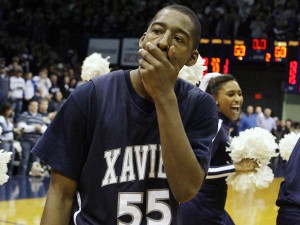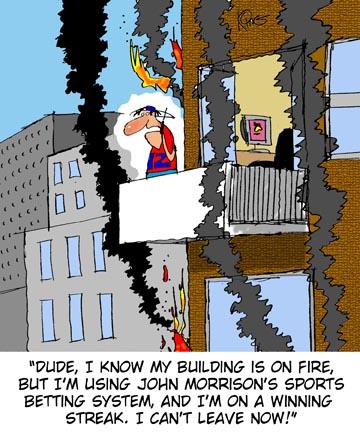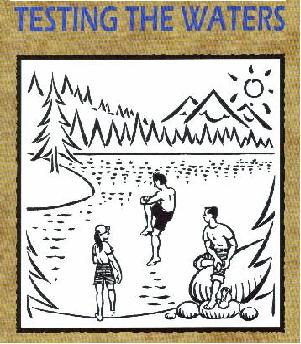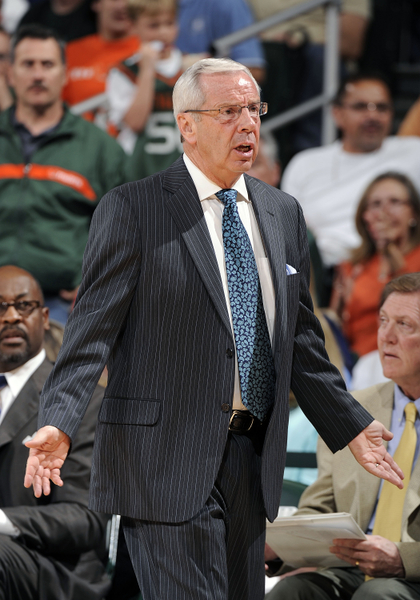That’s Debatable: Considering NCAA Consistency
Posted by rtmsf on January 14th, 2011That’s Debatable is back for another year of expert opinions, ridiculous assertions and general know-it-all-itude. Remember, kids, there are no stupid answers, just stupid people. We’ll try to do one of these each week during the season. We’re fairly discerning around here, but if you want to be included, send us an email with your take telling us why at rushthecourt@yahoo.com.
This Week’s Topic: The NCAA has taken a lot of flak in the last week for its seeming inconsistency in recent rulings involving Cam Newton, the Ohio State football players and Enes Kanter, among others. Give us your ideas on how the NCAA should handle an increasingly complex environment involving the eligibility issues of its student-athletes. Can it be consistent?
Andrew Murawa, RTC contributor
If the NCAA can at least be consistent in attempting to look out for the best interests of student-athletes, while maintaining as near a level playing field as possible for all schools to compete upon, that should be enough. In the Kanter case, it seemed to me that Kanter didn’t do anything inherently “wrong.” He accepted money from a Turkish professional team above and beyond expenses for housing, education and the like, but Kanter never showed any real interest in becoming a professional. If he had wanted to be a professional, he could have been pulling a salary overseas for years now, but he made the commitment to come to the United States and try to compete at the college level. If the NCAA was going to rule with the best interests of the student-athlete in mind, Kanter would have been eligible at some point, after an appropriate penalty and his repayment of whatever additional funds he received. The NCAA is never going to be able to come up with a one-size-fits-all solution to these types of amateurism cases, and comparing the circumstances and motives behind each individual case will never be exact, but if they can consistently rule in a manner protective of its student-athletes – while still protecting the goal of amateurism – they’ll at least be serving their mission.
Tom Wolfmeyer, RTC contributor
Transparency, transparency, transparency. The NCAA’s biggest problem in my eyes is that nobody seems to be able to predict how rules will be interpreted or penalties handed out in a given case. And then when the organization is questioned, they have trouble articulating the nuance and distinguishing between decisions. The only way to combat this is with complete transparency in how their enforcement system works and the decision-making matrix that the NCAA uses to establish guidelines for punishment. If Cam Newton’s situation is indeed different than Enes Kanter’s, and his is different than Derrick Rose’s, et al., then the NCAA needs to inform us as to the specific criteria used to make decisions and then follow those same guidelines in future, similar cases. The way it stands now is entirely too ambiguous, which ultimately creates an appearance of the NCAA enforcement folks playing favorites and impropriety. And isn’t that the exact thing that the NCAA purports to be working for — a level playing field with a fair and just system?
Brian Otskey, RTC contributor
I think it’s impossible for the NCAA to be consistent when it comes to every student-athlete. I know Cam Newton was basically shopped around but I don’t follow college football and don’t know anything beyond that so it’s not my place to comment on that or the Ohio State football controversy. What I do know is that Enes Kanter is a professional athlete. He played for a professional team and received $33,000 above his necessary expenses, according to the university and the NCAA. The outrage from Dick Vitale and others that the NCAA declared him ineligible to get back at John Calipari is ludicrous. Kanter would be ineligible no matter what team he played for and teams knew he was a risk while recruiting him. I can’t blame Kentucky for taking a risk with a potentially great reward but let’s stop with the conspiracy theories about this. When it comes to Josh Selby, that money wasn’t even 15% of what Kanter was paid, though it does seem strange that he’s allowed to pay it back and play while Kanter cannot. The bottom line is that it’s impossible to create one rigid standard for everyone. Each situation should be looked at on a case-by-case basis.














































